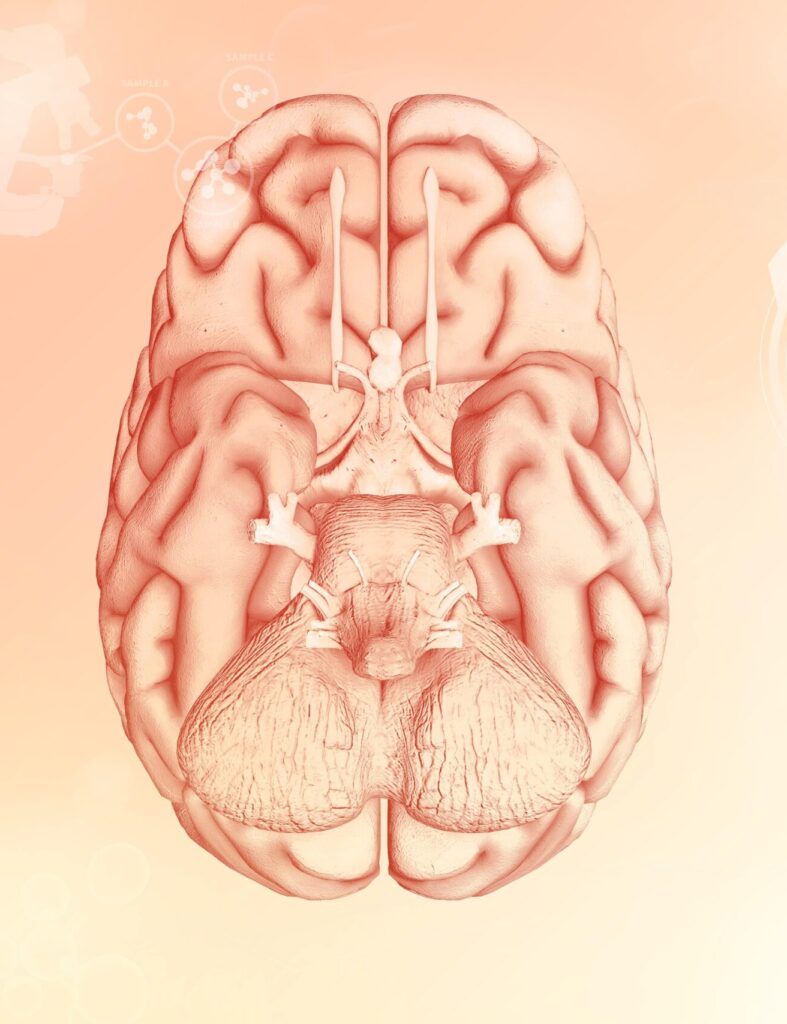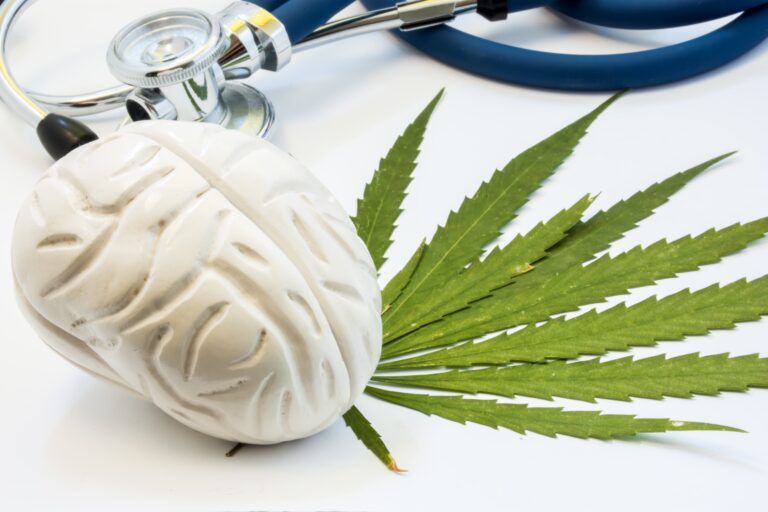The treatment landscape for common neurological conditions is constantly evolving, with medical professionals and researchers continuously exploring innovative approaches. One emerging area of interest is the combination of medical marijuana with traditional neurological treatments. This integration offers a unique opportunity to harness the potential benefits of both modalities, providing a holistic and comprehensive approach to managing conditions such as chronic pain, epilepsy, multiple sclerosis, and Parkinson’s disease. By leveraging the therapeutic properties of medical marijuana alongside established neurological treatments, patients may experience enhanced symptom relief, improved functionality, and a potential reduction in medication dosage and side effects. In this article, we will delve into the benefits of combining medical marijuana with traditional neurological treatments and explore how this synergy can potentially transform the treatment landscape for common neurological conditions.
Traditional Neurological Treatments vs. Medical Marijuana

Traditional neurological treatments encompass a range of approaches that have been the cornerstone of managing neurological conditions. These treatments include medications, physical therapy, occupational therapy, speech therapy, cognitive-behavioral therapy, and in some cases, surgical interventions. Medications play a vital role in managing symptoms, reducing inflammation, controlling seizures, and modulating neurotransmitter imbalances. Physical therapy aims to improve mobility, strength, and coordination, helping individuals regain functionality and independence. Occupational therapy focuses on enhancing daily living skills and facilitating participation in meaningful activities. Speech therapy assists in improving communication and swallowing abilities. Cognitive-behavioral therapy addresses psychological and emotional aspects, helping individuals cope with the challenges associated with neurological conditions. Surgical interventions, such as deep brain stimulation, may be considered for specific cases. Traditional neurological treatments provide evidence-based approaches to manage symptoms, improve functioning, and enhance the overall quality of life for individuals with neurological conditions.
Medical marijuana refers to the therapeutic use of cannabis or its derivatives for the treatment of various medical conditions and symptoms. It involves the administration of marijuana or its active compounds, such as tetrahydrocannabinol (THC) and cannabidiol (CBD), under medical supervision to alleviate symptoms and improve patients’ well-being. Medical marijuana contains chemical compounds that interact with the body’s endocannabinoid system, which plays a role in regulating various physiological functions, including pain perception, inflammation, mood, and appetite. The use of medical marijuana is often guided by healthcare professionals and is subject to specific legal and regulatory frameworks in different jurisdictions. It has shown promise in managing conditions such as chronic pain, epilepsy, multiple sclerosis, and cancer-related symptoms, among others. Medical marijuana offers an alternative treatment option for individuals who have not responded well to traditional therapies or are experiencing significant side effects.
The Benefits of Combining Medical Marijuana and Traditional Neurological Treatments
Neurological conditions, such as chronic pain, epilepsy, multiple sclerosis, and Parkinson’s disease, pose significant challenges for patients and healthcare professionals alike. While traditional neurological treatments have long been the standard of care, they often come with limitations and may not provide complete relief from symptoms. This has led to a growing interest in integrating medical marijuana into treatment plans, harnessing its potential therapeutic benefits. By combining medical marijuana with traditional neurological treatments, we have the potential to revolutionize the care of common neurological conditions, offering patients a more comprehensive and personalized approach.
Combining medical marijuana with traditional neurological treatments offers several benefits in managing neurological conditions. Some of these benefits include:
- Enhanced Symptom Management: Medical marijuana has shown potential in providing additional symptom relief when used alongside traditional treatments. The compounds in medical marijuana, such as THC and CBD, interact with the body’s endocannabinoid system, which plays a role in regulating pain, inflammation, mood, and other neurological functions. By combining medical marijuana with traditional treatments, patients may experience improved symptom control, reduced pain intensity, decreased muscle spasticity, and better management of seizures.
- Reduction in Medication Dosage and Side Effects: Traditional neurological treatments often involve medications that may come with side effects and risks of dependency. By incorporating medical marijuana into the treatment plan, there is a possibility of reducing the dosage of traditional medications, thereby potentially minimizing their associated side effects. This can lead to improved patient tolerability and overall well-being.
- Complementary Mechanisms of Action: Medical marijuana and traditional treatments may have complementary mechanisms of action, making their combination more effective than either treatment alone. For example, medical marijuana’s anti-inflammatory properties can complement the actions of traditional anti-inflammatory drugs, providing a synergistic effect in managing conditions characterized by inflammation, such as multiple sclerosis.
- Improved Quality of Life: Neurological conditions can significantly impact a person’s quality of life, often causing pain, mobility issues, cognitive impairments, and emotional disturbances. The combination of medical marijuana and traditional treatments can address multiple aspects of these conditions, leading to improved functionality, better mood regulation, enhanced sleep, and an overall enhanced quality of life.
- Potential Neuroprotective Effects: Medical marijuana has shown promise in exhibiting neuroprotective properties. In conditions such as Parkinson’s disease and multiple sclerosis, where there is degeneration of neural tissues, medical marijuana’s potential to protect nerve cells from damage and slow down disease progression could have significant implications for long-term treatment outcomes.
- Personalized Treatment Approaches: Each patient’s experience with a neurological condition is unique, and a combination approach allows for more personalized treatment plans. By considering individual patient needs, preferences, and responses to different treatments, healthcare providers can tailor the combination of medical marijuana and traditional treatments to optimize outcomes and improve patient satisfaction.
- Expanded Treatment Options: The inclusion of medical marijuana as a treatment option expands the range of therapies available for patients. This broader selection of treatments provides more opportunities to find an approach that works best for each individual, particularly for those who have not responded well to traditional treatments alone.
It is important to note that the benefits of combining medical marijuana with traditional neurological treatments may vary depending on the specific condition, patient characteristics, and other factors. As with any medical treatment, it is crucial to consult with healthcare professionals knowledgeable in both medical marijuana and neurological conditions to ensure safe and effective treatment plans.
Neurological Conditions That May Benefit from a Combination Approach
The combination of medical marijuana and traditional neurological treatments may offer potential benefits for various neurological conditions. Some of the conditions that could potentially benefit from this combination approach include:
Epilepsy
For individuals with epilepsy, medical marijuana has shown promise as an adjunct therapy. In some cases, traditional antiepileptic medications may not provide adequate seizure control or may come with severe side effects. Medical marijuana, particularly CBD-rich strains, has demonstrated anticonvulsant properties, leading to a reduction in seizure frequency and intensity. By combining medical marijuana with traditional antiepileptic drugs, patients may achieve better seizure management and experience a significant improvement in their daily lives.

Multiple Sclerosis (MS)
Multiple sclerosis (MS) is another condition where the combination of medical marijuana and traditional treatments holds promise. MS is characterized by inflammation and damage to the central nervous system, leading to various symptoms such as muscle spasticity, pain, and mobility issues. Medical marijuana, with its anti-inflammatory and muscle-relaxing properties, can work synergistically with traditional medications to alleviate spasticity and improve mobility. Furthermore, medical marijuana’s potential neuroprotective effects may help slow down the progression of MS and mitigate the associated cognitive symptoms.
Parkinson’s Disease
Parkinson’s disease, a neurodegenerative disorder, affects movement, coordination, and overall quality of life. While medications such as levodopa are commonly prescribed to manage symptoms, they may lose effectiveness over time or cause adverse effects. Medical marijuana has shown promise in alleviating motor symptoms, reducing tremors, and improving sleep and mood in Parkinson’s patients. By integrating medical marijuana into treatment plans, individuals with Parkinson’s disease may experience enhanced symptom control, reduced medication-induced side effects, and a better overall quality of life.
Chronic Pain
Conditions such as neuropathic pain and chronic migraines often respond poorly to traditional pain medications alone. The analgesic properties of medical marijuana, particularly strains rich in CBD, may provide additional pain relief and help reduce reliance on opioids and other pain medications.
Neuropathy
Peripheral neuropathy, a condition characterized by nerve damage resulting in pain, tingling, and numbness, may benefit from the combination of medical marijuana and traditional treatments. Medical marijuana’s analgesic and neuroprotective properties may help alleviate neuropathic pain and improve nerve function, potentially enhancing overall symptom management.
It’s important to note that the efficacy and suitability of the combination approach may vary among individuals, and the use of medical marijuana should be discussed with a healthcare professional experienced in both medical marijuana and the specific neurological condition. Personalized treatment plans should be developed based on individual needs, taking into consideration factors such as the severity of the condition, previous treatment responses, and potential risks and benefits.
In Conclusion
The combination of medical marijuana and traditional neurological treatments represents a shift towards personalized and integrative care. By tailoring treatment plans to individual needs and leveraging the therapeutic potential of medical marijuana, healthcare providers can optimize symptom management, reduce medication burden, and enhance the overall well-being of patients living with common neurological conditions. As further research and clinical trials explore the efficacy and safety of this combination, we can anticipate groundbreaking advancements in neurological care, paving the way for improved outcomes and a brighter future for those affected by these conditions.

Dr. Kashouty, a diplomate of the American Board of Psychiatry and Neurology (ABPN), practices general neurology with fellowship trained specialization in clinical neurophysiology. Dr. Kashouty finds the form and function of the nerves and muscles the most interesting part of neurology, which is what led him to specialize in neurophysiology with more emphasis on neuromuscular conditions. He treats all neurological diseases, but his main focus is to treat and manage headaches, movement disorders and neuromuscular diseases.




